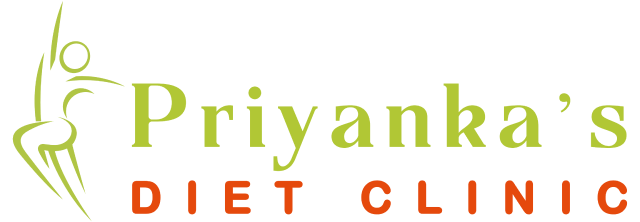5 Must-Know Facts For a Healthy Heart – You may not think about your heart frequently, but here are some fascinating facts you want to take advantage of. Your heart does wonderful things day in and day out. The main function of your heart is to keep oxygenated blood flowing throughout your body. You may be surprised by how difficult it works to keep you alive. In this blog, we will explore 5 Must-Know Facts For a Healthy Heart.

In this blog, we will talk about five valuable and often unknown facts about heart health. The heart is our constant partner, it is important to know how to keep our heart healthy. To improve your journey toward heart health, speak with the top nutritionist online for individualized advice.
5 Must-Know Facts For a Healthy Heart
Here is the list of 5 must-know facts for a healthy heart :-
1. Debunking Cholesterol misconception
Heart health and cholesterol have been intimately linked. A lot of people think that having high cholesterol damages the heart. I want to dispel this widespread misunderstanding. Glucose is 80% of cholesterol, whereas good fats comprise 20%. Thus, there is a clear link between cholesterol and how we manage our insulin. Increased cholesterol is more likely if your blood sugar is not properly regulated, particularly if you have diabetes. This is because our bodies create 80% of their cholesterol from glucose. To maintain a healthy heart, our bodies require good fats. People avoid oils and ghee because they believe they are unhealthy. Healthy fats can be obtained from saturated fats such as medium-chain triglycerides from coconut and desi ghee.
Almonds, walnuts, sunflower seeds, and pumpkin seeds are good sources of vitamin E, which is necessary for heart health. The fat-soluble vitamins A, D, E, and K are better absorbed when certain meals are consumed. These vitamins support heart health improvement. Thus, the myth that ghee raises cholesterol and is bad for the heart is untrue. It is not dangerous to consume cholesterol from plant sources; rather, cholesterol from animal sources is. Eating heart-healthy fats is beneficial. Managing diabetes is crucial for heart health since it is necessary to realize that 80% of cholesterol originates from glucose and just 20% from good fats.
2. The Power of Physical Activity
Whether you’re sleeping or working, your heart never stops beating and pumping. But are we giving our hearts the time they need? Spending time on your heart involves more than just brisk exercise. Sitting all day without moving about hurts heart health. You may have observed that walking or any other type of physical activity causes your heart to sing. These exercises enhance the amount of oxygen your heart receives and the heart’s ability to pump blood. Consider that if your heart quits, even for a single day, you will forever be gone. Yes, exactly! Making time for your heart entails staying active all day and following a regular workout schedule. Make sure to move your body throughout the day.
3. Antioxidants: Protector of Heart Health
An antioxidant-rich diet is essential for heart health. The free radicals that cause inflammation in the body are fought off by antioxidants. Vitamins C and E are common antioxidants, and heart health requires a variety of minerals. Our bodies use antioxidants, such as vitamins C and E, as defense mechanisms. Selenium, copper, magnesium, manganese, and zinc are among the minerals that must be consumed for optimum absorption. These minerals are abundant in cashew nuts. A small handful of cashews—roughly 6-7—can help your heart if you find yourself ravenous at night. To maintain proper mineral levels try including the following sources in your diet.
- For Copper: One teaspoon of soaked sunflower seeds should be consumed, along with water from a copper flask.
- For Zinc: Pumpkin seeds,
- For Selenium: Brazil nuts, and
- For Manganese: Spinach, Pineapple, and Rice.
The secret to improved heart health is eating a varied diet. By consuming these antioxidant minerals, you can make sure that your body combats free radicals in an efficient manner, which lowers inflammation and strengthens your heart.
4. Homocysteine and CRP Levels: A Deeper understanding
We frequently pay close attention to our lipid profile during our physical examinations, which include checking our cholesterol, HDL, and LDL levels. However, it’s essential to also examine your homocysteine and CRP levels for a more comprehensive picture of the health of your heart.
- Homocysteine level: Homocysteine is an amino acid that influences blood vessel stiffness, and elevated levels can indicate potential heart issues.
- CRP ( C-reactive Protein levels): It evaluates the amount of protein in your liver and can assist in figuring out how inflammatory your body is.
A high level of these indicates heightened inflammation and an increased risk of cardiac issues. The B complex vitamins (B1, B6, and B12) are necessary for controlling homocysteine levels. Improved gut health is necessary for the absorption of these vitamins. Homocysteine levels are impacted by improper nutrient absorption that occurs when there is constipation or acidity. Water-soluble vitamins are those in vitamin B complexes. Therefore, it’s equally essential to stay hydrated. Maintaining adequate hydration enhances nutrient absorption and lessens bloating.
5. The Impact of Overthinking on Heart Health
Overthinking has become a prevalent worry in the fast-paced world of today. It affects our hearts as much as our intellect, causing perplexity. Overanalyzing might cause your heart to be burdened with tension and stress. In a symbolic sense, your heart seems smaller the more you overthink things. To live a healthier, stress-free life, you must expand your thinking and cut back on overthinking. To reduce heart stress, let go of your need to always complain and accept kindness and thankfulness. broadening your heart and mind. Allow for fresh viewpoints and experiences. This results in improved overall health.
Conclusion
I hope this blog helps you to know 5 Must-Know Facts For a Healthy Heart. Your general health depends on the condition of your heart. Incorporate good fats and monitor your sugar intake. Don’t lead a sedentary lifestyle; instead, be active. Adopt an antioxidant-rich diet and learn to de-stress by not overanalyzing things. During your routine health check, don’t forget to check your lipid profile, homocysteine, and CRP levels. You may achieve and sustain a robust and healthy heart by adhering to these five important facts.
Frequently Asked Questions (FAQs)
Question – Which is the best Dietitian for giving a healthy heart diet?
Answer – Dietitian Priyanka gives a healthy heart diet.
Question – Which dry fruit is good for the heart?
Answer – Almonds, macadamia nuts, hazelnuts, and pecans also appear to be quite heart-healthy.






